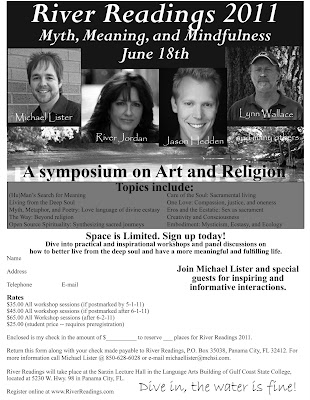
This past weekend, I spoke at a writers’ conference in Fort Walton Beach with one of my publishers. Toward the end of our session, while taking questions from the audience, one of the attendees told us he had been writing for ten years and had only received rejections. He then asked us what was wrong with the publishing industry, why was it so broken it couldn’t see there was money to be made from his books, adding that he knew the only way to get published was to know somebody, to have an “in,” an unfair advantage.
At the conclusion of the session, I spent some time talking to the keynote speaker of the conference who had slipped in about half way through our presentation. He is truly a fantastic writer, a bestseller, and a great guy. He is also someone who not only teaches the craft of writing, but continually works to improve his own.
As we talked, he mentioned how, when he first started writing, he wrote four novels over ten years and couldn’t get any of them published. He shared with me how he didn’t give up, how he worked hard and learned his craft, and how it paid off with his fifth novel—the one that launched his brilliant career.
He didn’t give up, he worked hard, didn’t make excuses, and he broke through, got published, and has done very well. Unlike the angry young man that has yet to attract the attention of an agent, the successful writer didn’t blame his failure on a corrupt, nepotistic system.
I have a lot of writer friends (lots of friends working in all the arts) and not one, not a single one—was helped because they knew someone. They’ve worked hard, paid a price, and earned everything they’ve ever received.
Later in the weekend, I had the privilege of observing the work of and talking to a visual artist. She is a working artist, making a living and her way in the world by living the artists’ life. We spoke about the romantic notion some people have surrounding art and its creation. She, like the best and most productive artists I know, is living an unassuming life dedicated to creating, to improving, and to supporting her work the best way she knows how. She doesn’t have a huge studio or expensive equipment. She has a table—a dining room table. And on it, she makes amazing art. And she does this day after day, week after week, year after year.
Both artists—the bestselling writer and the successful visual artist—are living the artist’s life, one of continual creation, humility, evolution, overcoming self-doubt and drama and criticism with the dignity of discipline and dedication. They continue to produce good work because they work hard. They don’t merely strike the pose of an artist or talk about art. They work hard to create it.
Living an artistic life is like living any kind of life. There are no shortcuts. Hard work and humility are more important than appearances and connections. Imagination, creativity, and dedication are more important than talent and intelligence. And attitude and approach are more important than anything else.







